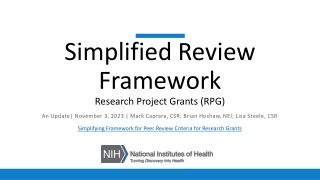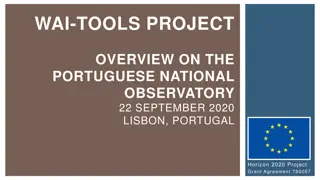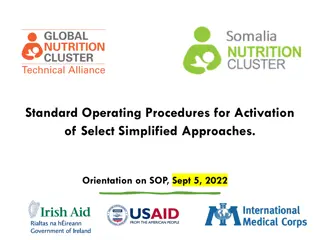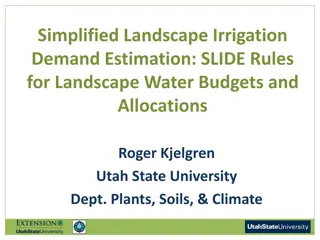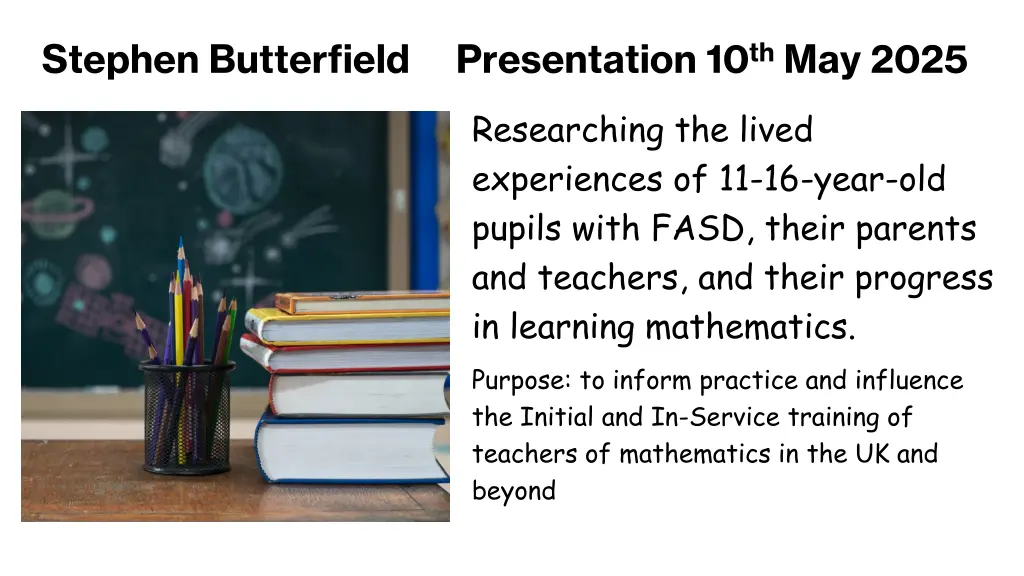
Understanding Teaching Conditions for Children with FASD
Explore the challenges faced by children with Fetal Alcohol Spectrum Disorders (FASD) in learning mathematics and how it impacts teaching conditions. The research aims to inform teaching practices and influence teacher training programs. Investigate the lived experiences of pupils, parents, and teachers to identify effective strategies.
Download Presentation

Please find below an Image/Link to download the presentation.
The content on the website is provided AS IS for your information and personal use only. It may not be sold, licensed, or shared on other websites without obtaining consent from the author. If you encounter any issues during the download, it is possible that the publisher has removed the file from their server.
You are allowed to download the files provided on this website for personal or commercial use, subject to the condition that they are used lawfully. All files are the property of their respective owners.
The content on the website is provided AS IS for your information and personal use only. It may not be sold, licensed, or shared on other websites without obtaining consent from the author.
E N D
Presentation Transcript
Stephen Butterfield Presentation 10thMay 2025 Researching the lived experiences of 11-16-year-old pupils with FASD, their parents and teachers, and their progress in learning mathematics. Purpose: to inform practice and influence the Initial and In-Service training of teachers of mathematics in the UK and beyond
My Research Focus An exploration of the maths curriculum access for learners with Foetal Alcohol Spectrum Disorders (FASD) in KS3 and KS4. A bounded case study of one Local authority The Implications for teachers are: FASD affects part of a pupil s brain and their ability to understand and retain abstract concepts, including mathematics. Traditional teaching approaches will need to be rethought and redesigned. Many pupils will not be in mainstream schools or will achieve the same level as their peers Why does it matter to teachers?
My Research Questions: 1 What conditions for teaching and learning and the classroom environment are best suited for children with FASD and complex learning difficulties? 2 Which Teaching and Learning strategies have been seen to work? 3 those deciding policy, and what are the implications for training? What is the level of knowledge among maths teachers and
Basic outline of my Research Design: A bounded Case Study of Stoke on Trent or Staffordshire, Use the FASD parent support group to find 7 pupils, 4 at KS3 and 3 at KS4 -to see where the pupils are and the schools they are learning in: Use the local Maths association teacher group to identify 30 maths teachers working at KS3 and or KS4 The active participants in the Stoke on Trent area are: Me as the researcher, the Maths teachers , the pupils diagnosed with FASD. (who may or may not have an EHCP), Their parents and the teachers or support staff who work with them in the classroom
Research Question 1. What conditions for teaching and learning and the classroom environment are best suited for children with FASD and complex learning difficulties? In the various school settings: Observe the children working and teachers teaching Observe the types of teaching materials being used Observe the classroom environment, its features and how it is organised Observe the type of support provided Carry out the semi structured interviews with: The pupils (with a parent or responsible adult present) The teacher and or support Parents , about their experience Survey the specialist teachers / support A detailed case study analysis of each pupil using IPA
Research Question 2: Which Teaching and Learning strategies have been seen to work? Read papers, watch presentations, email the researchers related to the MILE programme in the USA. Summarise the key findings related to the methods used and how they improve teaching and learning outcomes. Do widespread Google scholar searches for any other approaches used that relate to this research issue from anywhere else in the UK or anywhere else in the world that have been reported to have had some success.
Research question 3 What is the level of knowledge among maths teachers and those deciding policy, and what are the implications for training? I will ask (by email) the secretary of the Maths Association group to contact heads of maths in the local schools who in turn will ask their colleagues and find 30 maths teachers willing to help. I will ask them to complete a survey to explore the extent of their knowledge of teaching maths to pupils with FASD and to find the level of training they have received, both as initial Teacher training and In-Service training. The survey contains many discrete questions that can easily be counted and recorded and statistics done. There are some open questions where general themes will need to be identified. These will be summarised in a narrative conclusion.
Data Analysis Quantitative analysis of survey questions, reflexive thematic analysis of interviews and other narrative forms of data collection. Use IPA and Rhythm Analysis to examine each individual case. My original contribution to knowledge: Use of IPA in education, particularly SEND and complex learning difficulties. No one else is researching this area in the UK
My Positionality Experienced maths teacher. now retired with a good knowledge of the maths curriculum and of various teaching strategies, materials and approaches Practical, Factual, Non-political, non-religious, White, British, middle- class, Male Honesty, loyalty, a strong moral compass, hard work and a finisher completer approach. My working-class background is embedded in caring for and looking after the needs of others and being part of the community.
Ontology - - Social interpretivism Human and Social, Understanding and exploratory a caring and community approach to teaching and learning working in a trusting environment, incorporating relational pedagogy
Epistemology Looking to inform educational research, practice and influence teacher training both initial and INSET looking to inform DFEE to raise awareness and shape future guidance and legislation Analysing the benefits of the FASD label gained through diagnosis and awarding of EHCP s, but then the difficulty of finding specialist places and support
Axiological Position From my background, beliefs associated with a close-knit working class community, honesty, morality and hard work. In my teaching career, the emphasis has been on the school as a community and a caring approach to working with both children and other teachers. This is exemplified by relational pedagogy and the care approach to teaching and learning. My values are that this is research that will benefit learners, teachers and parents and will inform current and future practice.
Methodology Methodology Interpretative Phenomenological Analysis (IPA), (no Bracketing) Ethnographic elements within the design Bounded case study (Stoke on Trent) Methods Methods Semi-structured Interviews with the specialist teachers and parents Observation of children working in their learning environment Survey of teachers; 30 maths teachers working with 11-16 yr olds and 7 specialist support Data Analysis Data Analysis Reflexive thematic analysis using IPA and Hermeutics approaches Rhythm analysis of time and space
Theoretical framework Case Study Yin, R.K. (2009) Case Study Research: Design and Methods. 4th edn. London: Sage. Paradigm and methodology choice Denzin, N.K. and Lincoln, Y.S. (2018) The sage handbook of Qualitative research. 5th edn. London: Sage, Kivunja, C. and Kuyini, A.B. (2017) Understanding and Applying Research Paradigms in Educational Contexts, International Journal of Higher Education, 6(5), p. 26.., Lather, P. (2006) Paradigm proliferation as a good thing to think with: Teaching research in education as a wild profusion, in International Journal of Qualitative Studies in Education, pp. 35 57 IPA: Smith, J.A., Flowers, P. and Larkin, M. (2022) Interpretative Phenomenological Analysis. 2nd edn. London: Sage. Dibley, L. et al. (2020) Doing Hermeneutic Phenomenological Research A Practical Guide. London: Sage Reflexive thematic Analysis: Braun, V. and Clarke, V. (2006) Using thematic analysis in psychology, Qualitative Research in Psychology, 3(2), pp. 77 101 FASD and MILE program USA: Kable, J.A. et al.(2015) Community translation of the Math Interactive Learning Experience Program for children with FASD, Research in Developmental Disabilities, 39, pp. 1 11. Kully-Martens, K. et al.(2018) Mathematics intervention for children with fetal alcohol spectrum disorder: A replication and extension of the math interactive learning experience (MILE) program, Research in Developmental Disabilities, 78, pp. 55 65 Relational pedagogy: Cliffe, J. and Solvason, C. (2023) What is it that we still don t get? Relational pedagogy and why relationships and connections matter in early childhood, Power and Education, 15(3), pp. 259 273.


